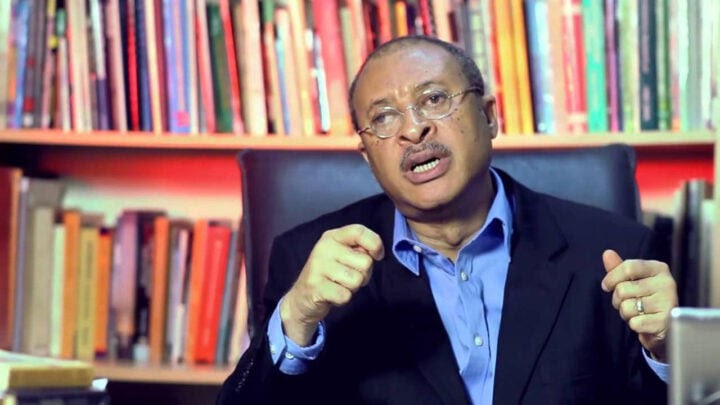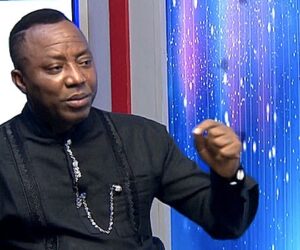Pat Utomi, professor of political economy, has reacted to
the federal high court ruling restraining him from forming a shadow cabinet.
James Omotosho, the presiding judge, on Monday held that the
concept of a shadow government or cabinet is unconstitutional and alien to
Nigeria’s presidential system of government.
Speaking during an interview on Channels Television’s
Political Paradigm, Utomi said his decision to form a shadow cabinet was not
about seeking constitutional recognition.
“I hope the lawyers will have something to say. We were not
looking to find a place in the constitution of Nigeria,” he said.
“This is unprecedented. Whatever it is, we’re not looking
for a place in the constitution,” he added.
When asked if the ruling ended his shadow government plans
or if he had an alternative, Utomi said he would continue exercising his civic
rights.
“As a citizen, I do expect that I will continue to be able
to express myself. I also have the freedom to meet with other citizens to
jointly express ourselves,” he said.
BACKGROUND
On May 5, Utomi announced his shadow government initiative
under the Big Tent Coalition, describing it as a credible opposition to the
President Bola Tinubu administration.
On May 14, the Department of State Services (DSS) filed a
suit against Utomi over the launch of the shadow government, arguing that it
usurped executive authority.
The suit, marked FHC/ABJ/CS/937/2025, was filed at the
federal high court in Abuja, seeking a declaration that the shadow government
initiative was illegal.
In July, Utomi unveiled members of his shadow cabinet to
“provide policy alternatives to the federal government”.
Shortly after the unveiling, the federal government, through
Mohammed Idris, minister of information and national orientation, opposed the
initiative.
“Nigeria is not a parliamentary system where such a system
is practised, and there is no provision for such in our statute books. While
opposition politics is a central feature of democracy, it must be practised at
all times within the bounds of propriety,” the minister said.
The DSS also warned that such actions could result in public
disorder, riots, and large-scale violence similar to the 2020 #EndSARS protests
if left unchecked.
On June 24, Utomi filed a preliminary objection asking the
court to dismiss the DSS suit on the ground that it lacked merit and legal
standing.
He said the DSS was attempting to criminalise
constitutionally protected rights, including freedom of expression,
association, and political participation under sections 39 and 40 of the 1999
Constitution (as amended).
However, Omotosho, in his judgement, held that Nigeria’s
constitution does not recognise any parallel or alternative government outside
the one it provides for.
Click to signup for FREE news updates, latest information and hottest gists everyday
Advertise on NigerianEye.com to reach thousands of our daily users









